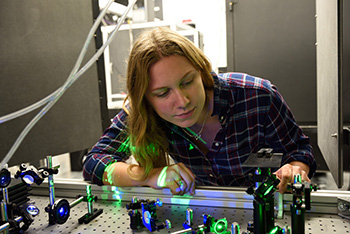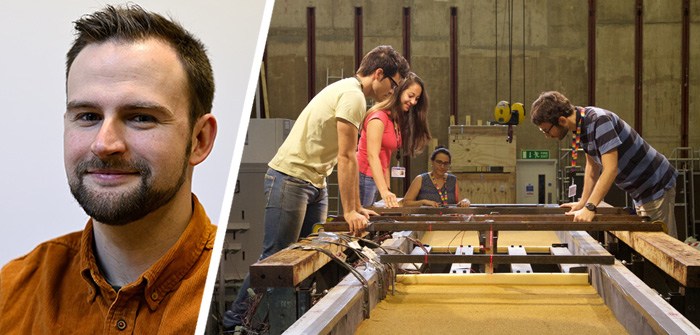Should I apply for a PhD?
A PhD can be a really exciting road to take, but before you apply you need to consider whether it’s the right route for you.
Josh Hoole, Lecturer in Aerospace Engineering, talks us through the what, why, where, when and how of doing a PhD and shares his tips for those who want to apply.
What?
A PhD is where you will undertake research that will provide an original and significant contribution to knowledge within your field. This is presented as a thesis up to 80,000 words which is assessed by a viva with leading experts.
It’s also 3.5 years to focus deeply on an area of engineering to uncover knowledge that nobody else has found before…
Why?

Many of us carried out a PhD because we love research or the specific area of engineering we focused on. PhD projects also open you up to new experiences, including presenting work at international conferences, networking, teaching and getting work published.
That’s not to say a PhD will leave you on a purely academic path. Many PhD holders find themselves in industry, often in research roles and you often see Chief Technology Officers holding a doctorate.
Where?
In the UK, we tend to split paths through a PhD in three main streams. The first is where you apply to a specific PhD project and work within a research group. Another way is via a Centre for Doctoral Training (CDT), where you start with a year’s Masters course within a cohort before starting your PhD project. The final is the EngD where you will typically work within/closely with an industrial company for your project.
Every university will have its own specialities so look around!
When?
Often PhD schemes will require you to have completed your Master’s, but this does vary from scheme to scheme, institution to institution and case to case. Again, speak to the team advertising the PhD project to find out more.
PhD adverts can be open year-round, but from my experience, there are ‘hot-spots’ for applications at the very start (i.e. now!) and end of the year, along with some towards the summer.
How?

Step 1 – try and figure out that you’d like to do a PhD (see my tips below) and this includes weighing up that it could be a different lifestyle to joining a grad scheme.
Step 2 – find a project or CDT scheme that aligns with an area you want to study in. Remember, this will be a labour of love so make sure it’s in a topic you want to spend 3.5 years on. You can find PhD opportunities listed on university websites, or on various PhD advert portals.
Step 3 – speak to the supervisory team on the advert. This is super important to help you get to know the team you could be working with.
Step 4 – go through the application process. Give plenty of time before the deadline to do this, as there can be a fair amount of paperwork to sort.
Hints and tips when considering and applying for a PhD
- Think carefully about the PhD lifestyle, it won’t necessarily follow a 9-5 pattern, will peak and trough and the work can be difficult to ‘put down’ at times. This isn’t always for everyone, but some people thrive off it, so have a good think about what might work for you, but also know how you would hope to manage your time to make sure you get rest!
- Think about how your funding route might also impact your lifestyle. However, the best thing to do is fully read up as some funding routes can come with perks, and many institutions will encourage you to support teaching and get paid for your time (worth discussing this with any potential supervisor you speak to!)
- Talk. Talk. Talk! Engage with the supervisor advertising the post, try and speak to their current students and post docs, speak to your peers, friends, family. This can help shape your thoughts – I used a week’s holiday to figure out what I wanted to do!
- You will be working on problems with no immediate or obvious answer. This is research. It can take a while to get comfortable with this, (answering a research question produces more questions), but if you like exploring the unknown, a PhD could be a good path for you!
Thanks for taking your time to read these thoughts and all the best with your plans for the future, whatever and wherever they may be!


